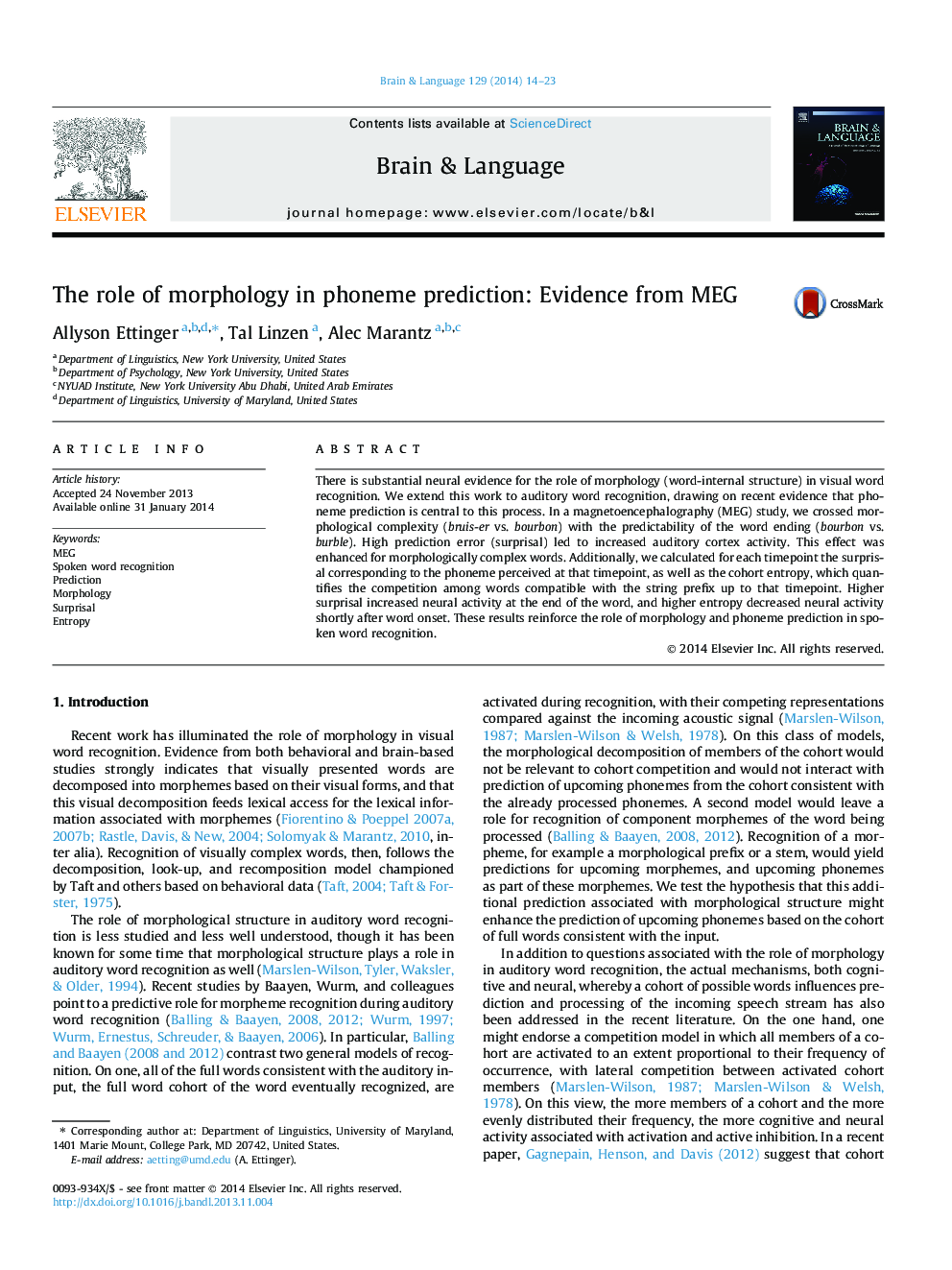| Article ID | Journal | Published Year | Pages | File Type |
|---|---|---|---|---|
| 925312 | Brain and Language | 2014 | 10 Pages |
•We investigate the role of prediction error and competition in spoken word recognition.•We explore how predictive processes interact with morphological structure.•Information-theoretic measures of prediction correlated with MEG signal in auditory cortex.•Morphologically complex words showed a stronger effect of surprisal.•This result argues for an active role for morphology in spoken word recognition.
There is substantial neural evidence for the role of morphology (word-internal structure) in visual word recognition. We extend this work to auditory word recognition, drawing on recent evidence that phoneme prediction is central to this process. In a magnetoencephalography (MEG) study, we crossed morphological complexity (bruis-er vs. bourbon) with the predictability of the word ending (bourbon vs. burble). High prediction error (surprisal) led to increased auditory cortex activity. This effect was enhanced for morphologically complex words. Additionally, we calculated for each timepoint the surprisal corresponding to the phoneme perceived at that timepoint, as well as the cohort entropy, which quantifies the competition among words compatible with the string prefix up to that timepoint. Higher surprisal increased neural activity at the end of the word, and higher entropy decreased neural activity shortly after word onset. These results reinforce the role of morphology and phoneme prediction in spoken word recognition.
